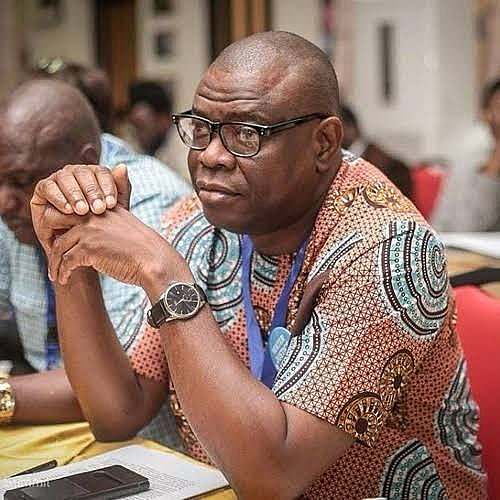At the opening of a two-day Media Capacity Building Roundtable and Dialogue in Abuja, Jaye Gaskia, Chair of the PCVE Knowledge, Innovation and Resource Hub (KIRH) and PAVE Network, delivered a strong message on Nigeria’s long battle with violent extremism. He said the country must learn from over 10 years of experience and ensure justice for victims and survivors.
Gaskia reflected on the painful journey, saying Nigeria needs to look back and identify what has worked, what has failed, and how to improve. He pointed out that young people are often the most vulnerable, easily lured into violent groups. He stressed the importance of rehabilitation and reintegration programmes that put victims and survivors at the centre, not just perpetrators.
He explained that reintegration cannot succeed unless the communities harmed by violence are also healed. This means restoring livelihoods, rebuilding homes, and helping people restart their lives. “Communities must be rehabilitated, not just individuals,” he said.
Gaskia noted that violent extremism has spread beyond Boko Haram in the Northeast. Today, Nigeria faces wider insecurity, including banditry, farmer-herder clashes, kidnapping, and extortion across the country. “These are national problems, not regional ones,” he said.
He reminded participants that Nigeria’s national PCVE policy, first introduced in 2017, is under review. The policy promotes a whole-of-society approach that involves government, communities, and civil society. He said there are ongoing efforts to develop state and local action plans to make responses more effective.
On governance, Gaskia pointed out that security is still fully controlled by the federal government, which makes decentralization difficult. But he argued that reforms are needed to improve accountability and effectiveness at state and community levels.
He urged more investment in prevention rather than waiting to fight terrorism after it grows. “We should fund PCVE more than counterterrorism. Prevention may not be visible, but it is the only way to stop problems before they spread,” he said.
Gaskia also appealed to the media. He urged journalists to report with accuracy, avoid sensationalism, and highlight positive stories of resilience. He introduced the PCVE Knowledge Hub as a platform that offers studies, e-learning, and resources for media and civil society.
He concluded with a call for collective responsibility: “Sustainable peace is about survival. If we work together, guided by shared values, we can truly build peace.”
In a goodwill message, Yetunde Adegoke, National Coordinator of GCERF Nigeria, said community engagement is key to preventing extremism. She described the event as a “watershed moment” in Nigeria’s fight for peace.
Adegoke explained that GCERF has been working in Nigeria since 2016 through NGOs, especially in the North Central and Northwest. She said donors can only act as catalysts, while communities must build their own resilience and solutions.
She added that GCERF supports the PCVE Knowledge Hub as a long-term model that will sustain prevention efforts even after donor funding ends. She stressed the importance of strong local governance, restoring social contracts, and empowering local governments.
Adegoke also called for private sector involvement, especially in creating jobs and supporting small businesses. “When youth and women have livelihoods, they are less likely to fall into extremism,” she said. She urged communities to include issues like gender, mental health, and trauma in prevention strategies.
She praised the media, saying journalists play a vital role in shaping narratives and spreading positive stories. “Congratulations on being part of this new movement to prevent violent extremism,” she told them.
Adamu Aliyu, Programme Coordinator at ActionAid Nigeria, also spoke about the influence of the media. He said media reporting shapes how people inside and outside Nigeria view the country. If reporting focuses only on conflict, he warned, it could scare away investors and visitors.
Aliyu stressed that media must play a central role in promoting PCVE across all sectors. He also noted that one in four Nigerians faces mental health challenges, which makes people more vulnerable to extremism. He urged the media to report in ways that promote peace and social cohesion, not division.
He added that positive reporting could boost investment and productivity, addressing root causes of violence. He encouraged journalists to work with communities to build value chains that empower youth and women.
“Media has a huge role in preventing and countering violence,” he said, calling for collaboration to turn discussions into real, impactful projects. He thanked participants for their commitment and urged them to carry the message forward.


